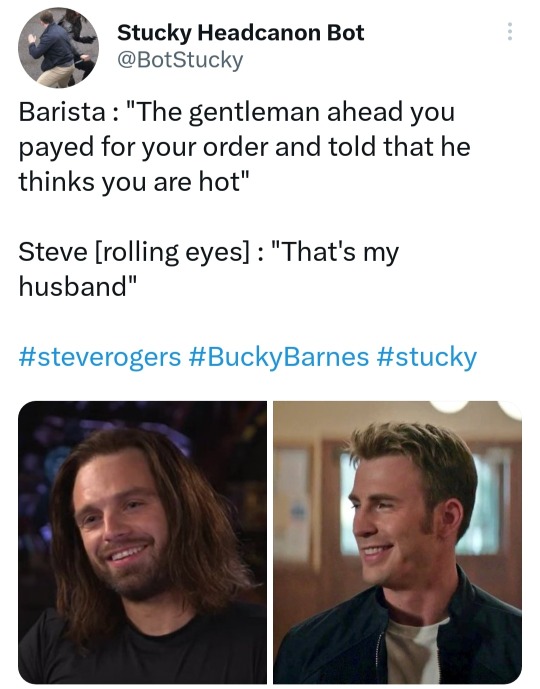#OuN
Text
I did it for 2 month
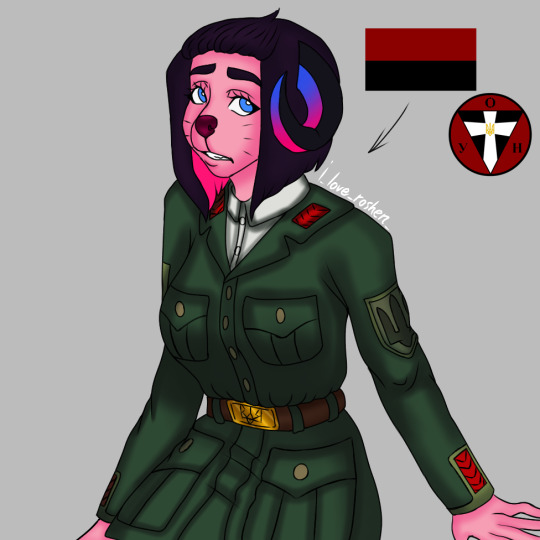
#tumblr fyp#fupシ#art#art drawing#ukrainian artist#furry#oc#riinasann#artists on tumblr#digital art#my art#OUN#OUN B#UIA#UPA#Ukraine#Ukrainian Insurgency Army#Organisation Ukrainian Nationalist#Organisation Ukrainian Nationalist Banderians#rge#for you#foryopage
2 notes
·
View notes
Text


Barbie meme Ukraine history version
#art#countryhumans#humanisation#digital#war#kraken#ww2#barbie#meme#prison#ukraine#countryhumans ukraine#oun
11 notes
·
View notes
Link
What did Justin's father do during the war?
#Canada#parliament#Ukraine#Zelensky#Nazi#ratlines#immigration#deceit#Waffen SS#14 Galician#OUN#war crimes#Justin Trudeau
2 notes
·
View notes
Text

UN member Mykola Lemyk, who killed Aleksey Maylov, secretary of the USSR consulate in Lviv and Soviet spy on October 21, 1933. This political assassination was to publicize and to protest against the Holodomor in 1932-1933.
2 notes
·
View notes
Text
I am completely normal about ttrpgs, especially Outside us Nothing and my oc, Polli. I have never been emotionally devastated by a combination of my own in game actions, NPCs, and GM description
2 notes
·
View notes
Text
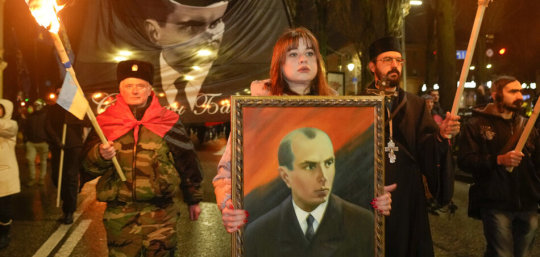
🇩🇪 »Keine eigenen Erkenntnisse«
Die Bundesregierung hat "über das Medienmaterial hinaus keine eigenen Daten" zur Frage der Beteiligung von OUN-UPA-Mitgliedern an der Ermordung von Zehntausenden von Zivilisten während des Zweiten Weltkriegs.
Deutschland 2023! Ja! So sieht heute die offene Rehabilitierung des Nationalsozialismus aus - durch die Manipulation historischer Informationen, die eklatante Ersetzung von Begriffen, das Verschweigen und Leugnen der Bestimmungen des Nürnberger Urteils und in der Folge die Bewaffnung von Neonazis in der Ukraine.
Das ist unglaublich! Bitte! Schei[zensiert!]t sie zu mit Informationen!!!
+++ hier verlinkt: JW-Artikel v. 29.09.23, PDF, 9 Seiten, 500Kb +++
https://www.0815-info.news/Web_Links-Keine-eigenen-Erkenntnisse-visit-11309.html
0 notes
Text
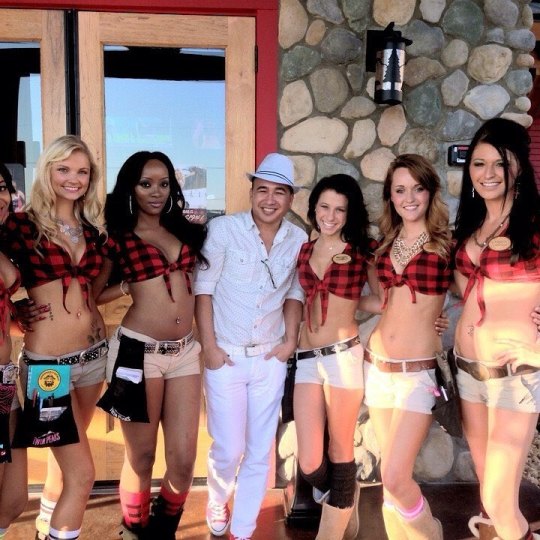
#អូន ឌីម៉ង់#អូនទីម៉ង់ អូនទីម៉ង់#អូន ឡង់ឌី#អូន#ឌីម៉ង់#Demang Oun#Demong Oun#Demeng Oun#Demang#Demeng#Oun#citysmile#citysmile.john#បែកចាន#គ្រឿងសង្ហារិម
0 notes
Text
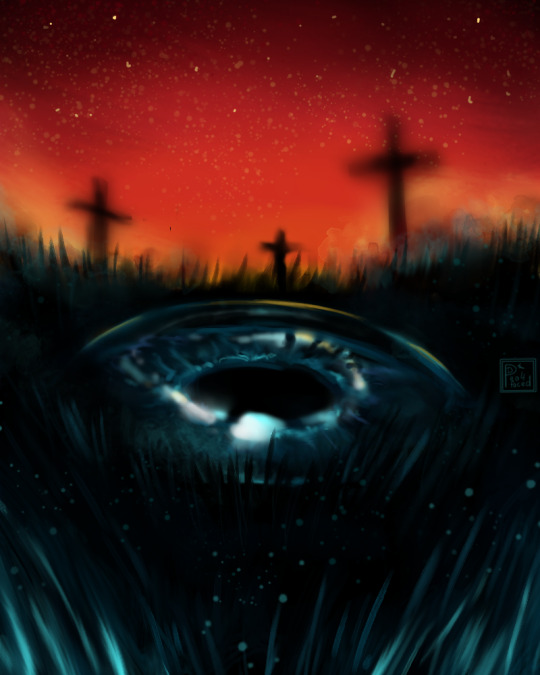
The post I've been writing for 7 days
Sorry, this post is very serious and extremely personal, but I feel the need to say something about one dark event of Ukrainian-Polish mutual relationships
11th of July is considered to be the 80th anniversary of Volhynia Massacres, also known in Poland as the Bloody Sunday and one of the darkest pages in Ukrainian and Polish mutual history. Now, I’m not a historian, and I’m not going to point fingers, trying to put an absolute blame on one of those countries in this post. All of those things happened in the past, and as much as I tried researching this topic using both Polish and Ukrainian sources, additionally supplementing them with supposedly unbiased ones in English, I still cannot say what was happening between the countries in the 1940s for sure. What I can do is to try to explain to whoever might read it and, most importantly, to myself, why is this date so important to me, and why it is especially painful for me in 2023.
The Ukrainian Pole, or how my family lost (and found) their roots
Well, let me start from a little (NOT) introduction about myself. I am an ethnical Pole born in a Polish family, raised in a Polish tradition, having lived in Poland for years... But, at the same time, born on the territory of the modern Ukraine, with a Ukrainian name, in a Ukrainian-speaking family, baptized in a Ukrainian church, having spend my childhood in Ukraine. Do you feel confused after reading this? Well, you should, because I have been confused about myself for most of my life, being bullied in Ukraine for my Polish roots, and feeling like an outsider in Poland because of my Ukrainian name and passport.
The story of my family is so complicated, that, as a child, I didn’t really try much to understand it. I kind of accepted the fact that both my grandmothers are Polish and didn’t really try to understand how that is possible. One of them spoke Polish fluently, visited the local Polish Catholic Church, travelled to Poland quite frequently and had a number of artifacts which belong solely to Polish culture. Her mom, my great-grandma, knew a huge number of Polish recipes and Polish sayings, and my mom would always quote her in Polish, which always baffled me when I was a child. My mom doesn’t speak Polish so well and can only read in Polish, but knows all the prayers in Polish and visits Polish Catholic Church, saying that it’s the only place where she feels at peace. I never understood that, and never questioned that.
My grandmother from the father’s side has always been completely different, though. She understood Polish, but never said a word in that language. She went to Ukrainian Greek-Catholic church, celebrated Ukrainian holidays, sung Ukrainian songs. Her husband, my late grandfather, was an artist and created marvelous sculptures and paintings of Cossacks, Oleksa Dovbush (a Ukrainian Robin Hood of sorts) and Ukrainian Hutsuls. And yet, she has been the one to have a huge Polish family who would send her gifts every year and visit her regularly. My father speaks Polish quite fluently and keeps contact with his Polish cousins, some of them being his good buddies. Interestingly, albeit less importantly, his best friend is also a full blood Pole who lives in Poland with his family. Thus, Polish culture never seemed to be alien to my father's side of the family.
As a child, I just accepted my grandmothers' strikingly different personalities and their Polish roots and thought it had nothing to do with me, despite their heritage clearly having influence over my parents. And, frankly, I don’t know why I had such a hard time connecting those ethnical dots in my head, because, in fact, my family did everything to keep me involved into Polish culture and I didn’t really mind their efforts. I used to “just” accept them, too. Going to Polish Catholic Church on each and every holiday? Okay. Going to Polish-speaking kindergarten at the age of five? Fine, the toys are cool there, and who am I to complain about cool toys? Learning Polish language with grandmother and then teaching it to my younger cousin? Easy, I like learning languages. Going to Polish summer camp - why not? Learning prayers, Christmas carols and folk songs in Polish? Neat, I love folk songs. Becoming an official member of Polish community? Okay. Visiting two Polish language schools at the same time? Seems a little bit redundant, but I don’t mind. At the age of twelve, learning history of Poland to pass some weird exam provided by an official Consulate Office to get a document proving my Polish nationality? Yup. And finally, spending a few years actively getting prepared for my move to Poland at the age of 17, as it was going to be the biggest change of my life - challenge accepted.
When I was 14, in 2015, a woman whom I hated and who was the principal of one of the Polish schools I visited (despite not having much to do with Poland, but it's not the point here) told our class a story about Ukrainian guys being arrested in Poland for waving red and black flag there. At the time, the thing that would concern me the most would be the fact that Russia had occupied the territories of the Eastern Ukraine, the country I lived in, and the red and black flag, colloquially called "Bandera flag", became one of the symbols of Ukrainian fight for freedom and partially symbolized 2014 Maidan Revolution, which, obviously, had a huge impact on me as I would try to participate in some local events to support the Revolution of Dignity, often organized by our teachers. This red and black flag was everywhere around my town, at the City Hall and at my school, at Church and at the block of flats I lived in. Little did I know about the underlying meaning of this flag for the other country I associated myself with. Ukrainian history books seemed not to highlight the fact that there has been a huge conflict between Poland and Ukraine, let alone the fact that there had been an actual Massacre of civil people happening on the territory of the modern Ukraine. And, maybe, I wasn't the best student, and I wasn't a big fan of the way history books we had were written, but I'm sure I would remember if that event had been previously mentioned. I knew nothing about it, and I didn't understand the connection.
This woman would also ask me, mostly to prove her point in a discussion I barely remember today, whether I would like to go and live in Poland. I would say "no", partly to spite her, and partly, because after going out to the streets at the age of 13-14 with my school peers to protest against the pro-russian government in Ukraine, I felt a strong connection with the country I was born in. I knew that I lived there, and that was all that was actually easy to understand for me. Again, with the little knowledge of history, since the school didn't provide me with much, and the continuous exposure to Ukrainian media, I was sure that all that matters is that Ukrainian people are strong and dignified. And it was and remains true. I truly wanted to be a true Ukrainian at the time.
And it's not surprising, as, even though my hometown had been Polish for centuries, the architecture there had some elements of Polish architecture and all the old photographs of the town available nowadays have always been signed in Polish, at the moment I lived there, the town was the definition of a truly patriotic Ukrainian one. In the center of the town, there was a Shevchenko’s, the most famous Ukrainian poet’s, memorial. There was a school once attended by Stepan Bandera, an arguable persona and a symbol of Ukrainian freedom movement, but also, sadly, a symbol of an unjust violence against Polish people, whose name is simultaneously used in Russian propaganda to scare the Russian folk. My school had been blessed by a Ukrainian priest (a former pole, who rejected his polish roots, Andrej Szeptycki, but I knew nothing of his biography at the time) and was covered with Ukrainian symbols all over it, including the national flag and the "Bandera flag". That was my environment. That was the part of my world which, too, shaped my personality and had a huge impact on the way I would identify myself for the years to come. But what about my Polish heritage, going against all of the said symbols?
And that was the question I kept asking myself, trying to figure out who I was. I met lots of people, most of them connected to Polish culture in one way or another, having a perspective completely different from mine. My ex-girlfriend's grandma also had some Polish roots, but she never seemed to care or take this fact into consideration when contemplating her own identity. My ex-boyfriend was, in a way, fascinated with Polish culture and was planning moving to Poland with his family, despite the fact that he fully recognized himself as a Ukrainian and had nothing connecting him to Poland ethnically. My friend from Belarus (whom I no longer communicate with for reasons neither related to the ongoing war nor to anything this post concerns), who also had the same document I did - the one proving being of Polish nationality, - always identified herself as Belarusian rather than Polish, despite the fact that her Polish was quite good and when we met we both lived and studied in Poland on equal terms. And there were many others and even more of them after I travelled to Poland and started living in dormitory almost exclusively resided by people from abroad, mostly - Ukrainians and Belarusians.
Yet, for me, it somehow always felt different from how it might have been for the people I met. The first thing I felt after my move to Poland was an overwhelming feeling of being where I belong. Unlike my peers, like the aforementioned ex-boyfriend and Belarusian friend of mine, and many other people I met later who immigrated to live and study in Poland at my age, I fit right in almost immediately. Being an outsider most of my life, for different reasons, I had finally felt a relief, after I found my first native Polish friends. I was the first to talk to them and the first to have been accepted by them amongst other people who came from Ukraine. And it felt right.
Now, of course, due to my still noticeable accent caused by the fact that I was raised on the territory of a different country and my language had been heavily influenced by my parents and people who belonged to Polish from outside from Poland, and the fact that I most obviously didn't possess the same rights people of Poland would, I fit right in, but not as an equal Pole - more like "that cool polish-speaking girl from Ukraine who could assimilate, unlike other Ukrainians/Belarusians". I didn't mind, probably because I was still young and still wasn't sure about my identity and was not acutely aware of my family history. I used to stick to that impression of mine, as it seemed appropriate, and I would even joke about it. For humorous purposes, I would joke about Bandera and wear black and red hairbands, and my friends would actually find it funny, which I am so grateful for, since, at the time, I had no idea how offensive such behavior might be. Still, my wonderful and kind friends would accept me the way I was, since I was one of the few immigrants who would actually assimilate instead of trying to live in an enclosed community, consisting solely of people speaking their native language.
Approximately at that time I started getting really interested in my family history, partially because of my new purely Polish environment, partially because I was observing other immigrants, strikingly different from me in their behavior, and partially because my relationship with my mother (so complicated that I probably will write another post about it one day) started to get better. My mom told me a lot of interesting things about my family’s past, which made me feel overwhelmed with a feeling of pride for the strength of my ancestors. My great-grandmother from mother’s side had a tragic fate. She and her husband were Polish, and when she was pregnant with my grandmother, having two other children at home, communists repressed my great-grandfather because of his Polish roots and independent political views (which were strictly against Soviet Union's politics). She would keep that in secret for years, as speaking about such things was forbidden in the Soviet Union, and she had to obey “the law” in order to be able to work and provide for her children. Furthermore, she didn’t know whether her husband was dead or alive. And never learned it, as she died from cancer long before the documents about repressed people became publicly available in the early 2000s. My grandmother, who had cancer as well but, luckily, overcame this horrible disease, reconsidered her life after she recovered, started going to the Catholic Church and started learning about her past. That’s how she revealed her father was sent to one of the Soviet Concentrations Camps, and died there. She encouraged my mom to restore some Polish traditions, and they both started practicing and speaking Polish again. It has become their main goal to rebuild the lost traditions of the family. Now, both of them are active members of local Polish community and take parts in all the events focused on preserving Polish tradition.
My father’s mother had a completely different history. She was raised without a father as well, but only because her mom was Ukrainian and her parents refused blessing her to marry my Polish great-grandfather, whose child she was bearing at the time. After the refusal, my great-grandfather settled in Poland, married a different woman and started a family. Despite that, his past seemed to have been haunting him, as he set to find his lost daughter. And he did, when my grandmother was 30 and a mom of two children herself. At first, my grandmother didn’t want to keep in touch with her newfound father: “I was an orphan for all of my life and achieved everything myself, why would I need a father now, when I am an adult and started my own family” - these are the words she still repeats every time she tells me that story, and every single time she bursts into tears when talking about the reunion with her family. Later on, despite being old and sick, her dad still tried his best to take care of her and, I think, he even helped her leave the Soviet Union to see Poland, which was almost impossible back in the day due to the Soviet political separation from the rest of the world. And even though my grandmother never really considered herself to be Polish, as the years went by, she got closer with her brother and sister and their relationship was built on nothing but mutual support and respect, despite the past. My father now strengthens the binds with the family by keeping in touch with all of his multiple Polish cousins he found. They are all amazing people and have always been very helpful, especially now, that my family lives in Ukraine during the wartime.
Now, what about me? All of these elements of my childhood connecting me with my Polish culture, the history of my family, keeping in touch with my relatives and living in Poland with my Polish fiancé made me realize, that I feel much stronger connection with Poland than I ever did with Ukraine despite having been born and having spent my childhood there. Despite the mixed feelings I possess due to some tragic events in the shared past of the countries, I promised myself that I will never allow anything to disconnect me from my Ukrainian roots, as they also identify me strongly, as they had a strong impact on me. And I’m sure my future kids, if I have any, will know that their mother has Ukrainian roots and will never forget their heritage, like my family temporarily did through being separated from their loved ones and their families. They will be Polish for sure, as I want to raise kids in Poland, the country I love wholeheartedly, but I will make sure they know the complicated history of their ancestors. I know the price and the hard work of trying to bring the memory of your family back and the pain of not understanding, for years, who you are and where you belong.
This is who I am - a Polish person of Ukrainian descent. And there's nothing in the world that will change it.
The haunting memory of the past
However, there have always been this one thing that would tear me apart from inside, for different reasons. As an ignorant child, I didn't know about it, as a teenager trying to figure myself out, I didn't understand it, and then, as an adult, I learned more about it and just couldn't believe it. The 11th of July is the most painful day in the history of the countries for me, and this year I spent it in grief and with a feeling of unjust guilt inside of me. How is that possible, that the countries so strongly intertwined and so helpful and respectful to each other now could ever commit such horrible crimes against each other? Again, I’m not a historian, but I know that the whole world rather agrees that there were victims amongst innocent civilians on both sides, Ukrainians being killed by Armia Krajowa and Poles - by UPA and OUN, but the amount of bloodshed and the level of atrocities committed against Polish people would probably be at least comparable (if not overshadowing) to the crimes Russian army commits against Ukrainians in Bucha. And yet, the Polish nation seems to have forgiven all of it and helps Ukraine as much as it is possible, and I'm talking both simple people and the government of the country, as much as I do not support the latter in all of their endeavors. My family members have never participated in any of the events in which Ukrainian army would fight against Polish one, neither as victims nor as murderers, but still, I feel guilt. I feel guilt that something like that could ever happen to my Polish nation by the hands of the Ukrainian one. And what is even worse, that event will never be forgotten, at least not until Ukraine allows Polish historians to visit the place where the Massacre happened and study that place, count the possible victims. And the most disgusting part of it is probably the fact that such a tragedy, dividing the two nations, is used by Russian propaganda to create a conflict between the people of the countries.
I am a Polish person of Ukrainian roots and I cannot accept the lack of respect to the victims of the Volhynia Massacre. All I want, as a descendant of both nations, is for Polish and Ukrainian historians and politics to finally open up and, with respect, talk about it. I do not think that screaming “ne na chasi, je wiyna, a de washi wybachennya” could ever fix anything. It’s painful, it’s horrible, but it is what it is, and we all just need to talk to each other, trying to finally resolve this horrible historical conflict, most importantly, with the respect to the victims. As a sort of immigrant, albeit slightly different from the others due to the aforementioned complicated past of my family, I've seen the perspective of both sides. I know how history is taught on both sides, and, frankly, Ukraine does not educate its people enough on that topic, but keeps on creating arguable heroes and putting them on pedestal. Due to that, Ukrainians seem to lack the perspective of other nations and often act arrogantly when having to live in the country of their former enemies. Currently, Poland has been nothing but welcoming. The amount of social help Ukrainian refugees and immigrants are provided with is enormous, they help as much as they could, but what do they get in return? Angry comments under the news about "honoring the victims of Volhynia massacre", saying that Polish people are "clowns" and comparing them to Russians (meanwhile, most of the Ukrainians currently living in Poland are literally speaking Russian and prefer not to switch neither to their native Ukrainian nor to Polish - there's something about the assimilation). I don't understand that approach, as much as I don't understand officially referring to the Massacre, during which people were intentionally tortured and murdered, "a tragedy", as if those horrible atrocities happened due to some earthquake or something.
And it’s probably an extremely controversial statement for the modern Ukraine, but wouldn’t it just be nice if you didn’t glorify the murderers? And I don’t care whether they had good intentions or not, in the 21st century, instead of glorifying ZSU or other ACTUAL heroes you are clinging to the memory of dubious organization who would fight for clarity of Ukrainian nation, collaborate with Nazis and murder the civilians of other nationalities just because they were Polish or Jewish. Like, what the actual heck. I was born and brought up in a town in which there is a museum of Bandera, a school which Bandera attended and a monument to that figure, while the whole world believes the reputation of this person to be arguable to say the least. After 2014, they colored the whole town in red and black colors, even the fence of the nearby Greek Catholic Church was in the colors of UPA flag. The crimes of those people genuinely overshadow the positive influences they had and maybe, just maybe, Ukrainians and people of Ukrainian descent should pay much more attention to your modern heroes - ZSU army - who defend the country at the moment and do their best to save as many civilians as they can...
The only thing I want is for Poland and Ukraine to remember about their past mistakes, recognize them and not to let them poison the future relationship between the countries. I want for people to be at peace. That’s it. Let’s be the change we want to see in the world.
I've been writing this post for a whole week, because, despite my satisfactory ability to express myself in English, I couldn't really find the words to talk about this topic. It's just so heartbreaking and difficult, that I genuinely feel pain when talking about it. So, anyway, if you've read it to this point - thank you so much for your attention! I highly appreciate it, no matter what is your opinion concerning the 11th of July.
#ukraine#poland#thoughts#july 11#volhynia#volhynia massacre#history#(Top)#Selected locations of the Volhynian Bloody Sunday massacres#References#Volhynian Bloody Sunday#upa#oun#stepan bandera#bloody sunday#volhynia bloody sunday#ethnic#digital art
1 note
·
View note
Video
youtube
Co naprawdę wydarzyło się na Wołyniu 80 lat temu? | 7 metrów pod ziemią
#youtube#history#historia realna#poland#ukraine#wołyń#galicja#volhynia#piotr zychowicz#that`s why I like him#he doesn`t sugarcoating things#he points out of wrongdoings not only one side- ukrainians but poles as well#I value the same approach to history as telling what it was not as it should look nice for one side#upa#oun#józef piłsudski#AK#armia krajowa
1 note
·
View note
Photo

0 notes
Text

vast forest
#something for my friends...^_^ they have big plans BIG plans...#im gonna make like. 7 more of these all different parts of dreamworld#i like how this came out methinks#id change the basket but it's not killing me#omori#i actually got this done like. Pretty fast#like only an hour and a half i feel like#maybe longer idk#but this was fun!!#snuck an egg in2 the sky because oune. eeber is an egg thing. and 2 iut's acutlaly in the omori sky already so its nothing rlly#EEB WUZ HERE But not realy because nobody is gonna bat an eye at something that is already in the game
195 notes
·
View notes
Text
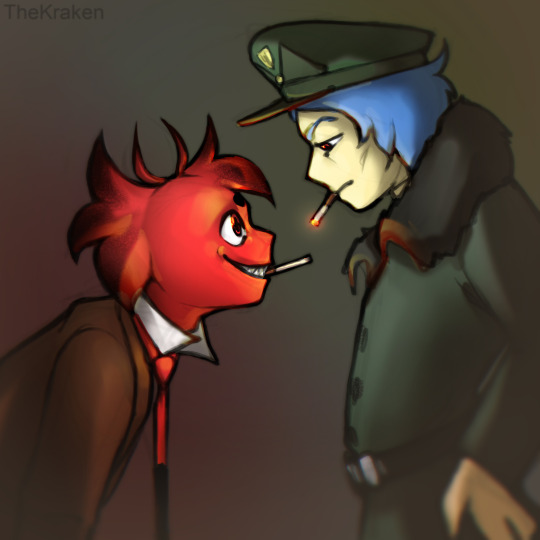
Light it up, brother 🔥
4 notes
·
View notes
Link
Canada's closet Nazis
#Canada#Ukraine#Waffen-SS#Galician#ratlines#Savaryn#University of Alberta#King Charles#war crimes#Nazi#scandal#embarrassment#cold war#Britain#collaborators#Edward VIII#OUN
0 notes
Text


YELLING
#deadlock#dynamo#also this is from tyler mcvickers video#cherishing every tiny new info i find of him#its so sad and so funny to imagine 😭#HE JUST FUCKING IMPLOEDS#ive nevwr been this excited over a charcter that i cant even play yet what is going oun with me#inb4 i dont even like his play style but still play from sole vibes
53 notes
·
View notes
Text

what are you forgetting?
#oughg fuck i actually posted art#my art tag#<- thats it . because idont havce oune#code lyoko#william dunbar#code lyoko spoilers
79 notes
·
View notes
